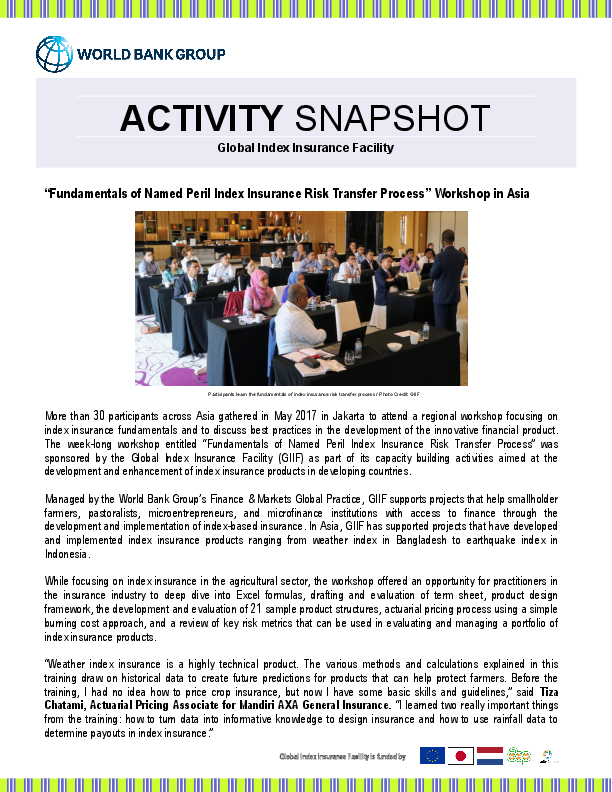"Fundamentals of Named Peril Index Insurance Risk Transfer Process" Workshop in Asia

Apart from classroom sessions and presentations, the workshop brought together industry participants from numerous countries – including Bangladesh, China, Indonesia, the Philippines, and Sri Lanka – to learn from one another’s experience with index insurance in their markets. These participants, including actuarial analysts, underwriters, reinsurance specialists, and business development specialists also worked together in their group exercises. Such hands-on experience led to an increase in participants’ confidence in applying the acquired knowledge to their work.
“I will definitely apply these new skills to the work I do -- for instance, I can foresee a big change in the way we use satellite data for product monitoring and pricing. We will develop our skills in advanced Excel methods and will use it in our regular work for agriculture index insurance development. Our goal is to expand and scale up index insurance in Bangladesh over the next couple of years,” declared Ali Tareque Parvez, Deputy Senior Vice President, Underwriting Management Department, Green Delta Insurance Company Limited.
The workshop in Jakarta proved to be very timely. Earlier in May, the International Finance Corporation (IFC) and MAIPARK entered a cooperation agreement to establish insurance schemes that will hedge risks against adverse weather events for agribusinesses, bank agriculture-loan portfolios, and farmer groups.
“The most important thing I learned was the logic behind the design of index insurance products. Weather-based index insurance products have a strong potential to make a big impact, especially in our commitment to help farmers improve their resilience to climate change and increasing weather-related risks,” Conrad De Jesus, IFC Operations Officer for Financial Institutions Group Advisory Services.
“In the future, I see IFC playing an important role in knowledge sharing, capacity building, and promoting index insurance, as well as using this instrument to support the agri-sector,” added Conrad.
